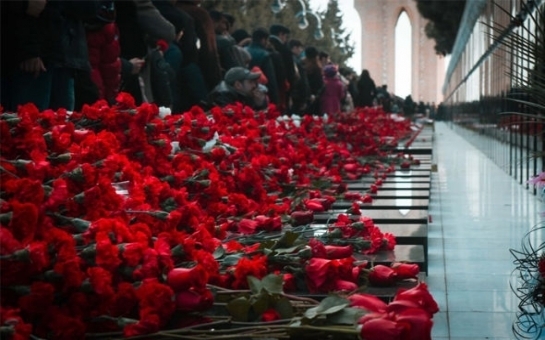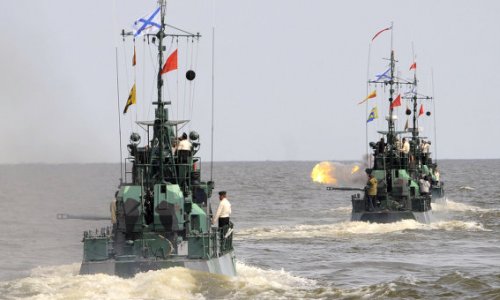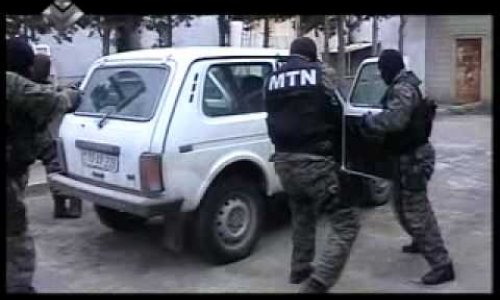By Peter Tase
(eurasiareview.com) - January 20, 2015 will mark the 25th anniversary of an historic and tragic day in the history of the Republic of Azerbaijan. On the night of January 19-20, 1990, 26,000 Soviet troops invaded the capital city of Baku and surrounding areas. By the end of the next day, more than 130 people had died, 744 were injured, 841 were arrested and hundreds were missing.
This event is remembered as ‘‘Black January’’ in the contemporary history of Azerbaijan and by its citizens. Such a tragic event left an indelible mark on the minds of all citizens. Soviet troops entered Azerbaijan under the authority of a state of emergency declared by the USSR Supreme Soviet Presidium and signed by then President Mikhail Gorbachev.
In the face of growing unrest among the people of Azerbaijan, a national independence movement, which had gained a strong foothold, and emerging democratic groups who were projected to succeed in an upcoming Parliament, the Soviet Union sought to ‘‘restore order’’ by indiscriminately firing on those peacefully demonstrating citizens in Baku, including women and children. The protesters were calling for independence from the Soviet Union and the removal of Communist officials.
The Soviet incursion in the early 1990 was intended to suppress the growing independence movement. Instead, it further incited Azerbaijani nationalism. In the end, Azerbaijan’s pro-Moscow regime grew weaker and by 1991, popular pressure led the country to break away from Soviet rule and declare its independence.
According to an article published by the Ambassador of Azerbaijan to Egypt, Shahin Adbullayev in "Tahrir News”, an Egyptian newspaper: "Black January was a massacre of innocent Azerbaijanis committed on January 19-20, 1990, which was a result of biased policy of the Soviet regime against the people of Azerbaijan. The Soviet Army’s bloody invasion of Baku was a great violation of the constitutions of the former USSR and the Azerbaijan Soviet Republic. The Soviet troops had used internationally prohibited weapons in Baku, and slaughtered women, children and the elderly.”
Indeed the honoring of Mikhail Gorbachev with the Nobel Peace Prize will remain an act of injustice in the post cold war history books, the Soviet leader was the principal architect of the armed clashes with civilians in January 1990.
Last year, to commemorate the 24th anniversary of January 20th Tragedy, the Azerbaijani Center in Houston arranged a ceremony to commemorate this historic event. The President of the Center Irada Akhundova invited the participants to take a moment of silence in memory of those who died that day. In her presentation she gave a brief summary of the events that led to the January 20 Tragedy.
According to one of the members of the Azerbaijan Center, Mehriban Efendi stated that "even though Black January is one of the most tragic pages in the history of Azerbaijan, it laid the foundation of a bright future of independent and free Azerbaijan.”
On August 30, 1991 Azerbaijan’s Parliament adopted the Declaration on the Restoration of the State Independence of the Republic of Azerbaijan, and on October 18, 1991, the Constitutional Act on the State Independence of the Republic of Azerbaijan was approved.
November 1991 marked the beginning of international recognition of Azerbaijan’s independence.
The United States opened an embassy in Baku in March 1992 and remains committed to aiding Azerbaijan in its transition to democracy and its formation of an open market economy.
Some historical observers have noted that the violence inflicted on the citizens of Baku may have been intended to send a message to other Soviet republics that similar aspirations of nationalism would not be tolerated. In the wake of this horrific act and inspired by the strength of the Azerbaijani people’s belief in the principles of democracy, the Republic of Azerbaijan has maintained its independence for over 24 years, despite lingering economic and social problems from the Soviet era.
Today, Azerbaijan has developed into a thriving country with double digit growth, in large part due to a freely elected president and parliament, free market reforms led by the energy sector, and most importantly, no foreign troops on its soil. The road to independence, sovereignty and territorial integrity for the Azerbaijani people has not come without adversity and sacrifice.
Even though Azerbaijan thrives today, the people of Azerbaijan recognize those who lost their lives on Black January tragedy in 1990 and honor their sacrifice through their commitment to the ideals of democracy. On the anniversary of this terrible tragedy, we who believe in the tenets of freedom and the hope of democracy should recognize the incredible sacrifice made by the people of Azerbaijan and by free people all around the world.
Black January events are seen as the rebirth of the Republic of Azerbaijan and they raised the levels of patriotic commitment in order to have an independent Republic of Azerbaijan. It was one of the most tragic occasions during the glasnost and perestroika era in which the USSR used military force against its dissidents.








